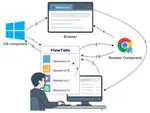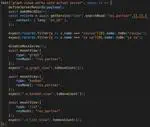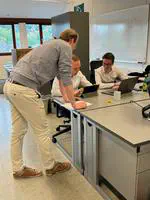DevEx
Advancing Mobile Code Editing: Johan and Simon's Work on Multi-Language Support with LSP Integration
Johan and Simon’s research is a significant step towards the development of an ergonomic and mobile code editor empowered by the Language Server Protocol (LSP) for multi-language support. While code editing is traditionally computer-based, the current technological landscape is witnessing a significant shift toward mobile technologies. Their work not only addresses this shift but also paves the way for a concrete and productive application designed for multi-language development in a single code editor on mobile devices.



